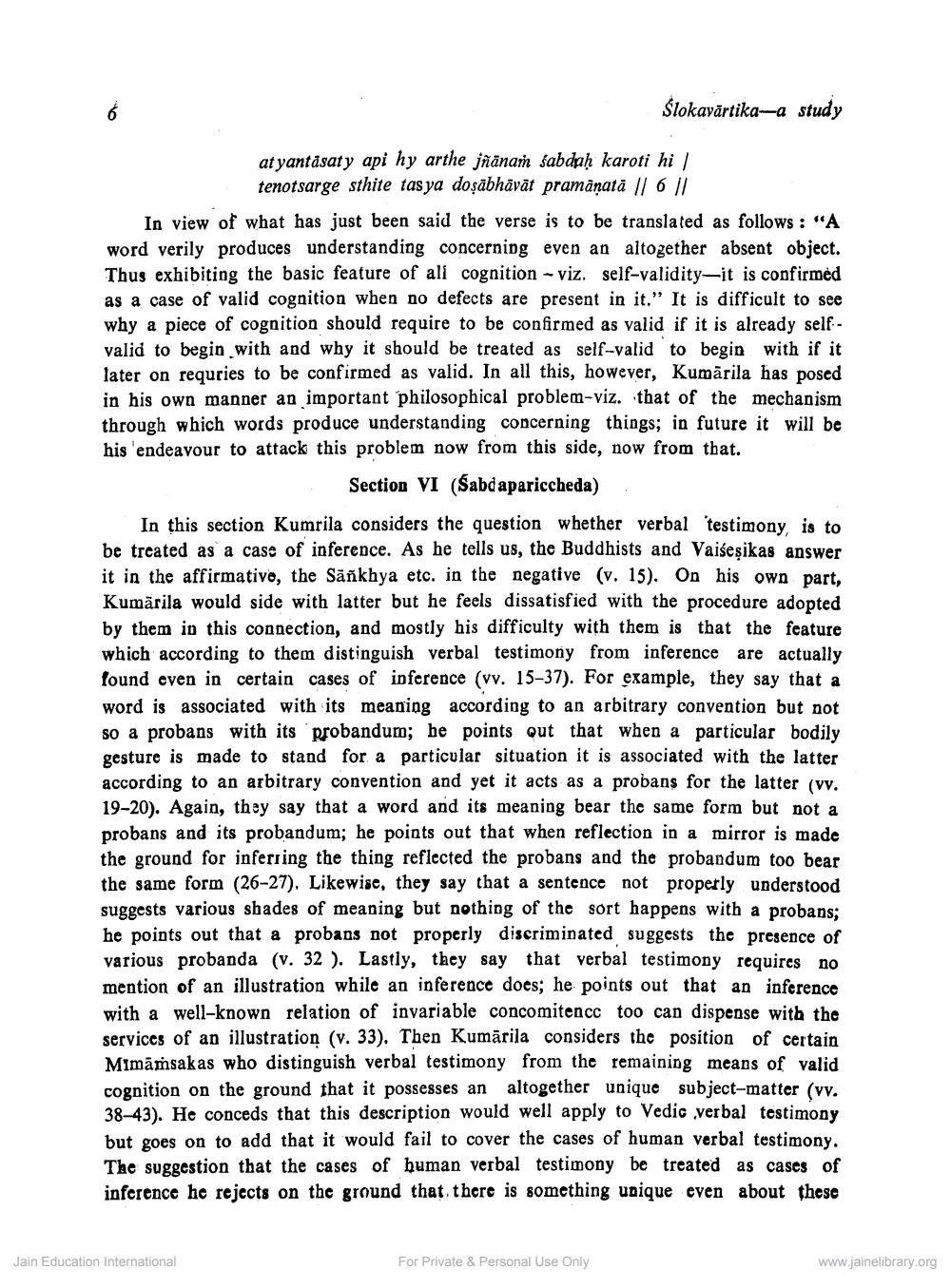________________
Slokavārtika-a study
at yantasaty api hy arthe jñānam šabdaḥ karoti hi /
tenotsarge sthite tas ya doşābhāvāt pramāņatā // 6 // In view of what has just been said the verse is to be translated as follows: "A word verily produces understanding concerning even an altogether absent object. Thus exhibiting the basic feature of all cognition - viz. self-validity-it is confirmed as a case of valid cognition when no defects are present in it." It is difficult to see why a piece of cognition should require to be confirmed as valid if it is already selfvalid to begin with and why it should be treated as self--valid to begin with if it later on requries to be confirmed as valid. In all this, however, Kumärila has posed in his own manner an important philosophical problem-viz. that of the mechanism through which words produce understanding concerning things; in future it will be his 'endeavour to attack this problem now from this side, now from that.
Section VI (Sabd apariccheda)
In this section Kumrila considers the question whether verbal testimony is to be treated as a case of inference. As he tells us, the Buddhists and Vaiseşikas answer it in the affirmative, the Sāñkhya etc. in the negative (v. 15). On his own part, Kumārila would side with latter but he feels dissatisfied with the procedure adopted by them in this connection, and mostly his difficulty with them is that the feature which according to them distinguish verbal testimony from inference are actually found even in certain cases of inference (vv. 15-37). For example, they say that a word is associated with its meaning according to an arbitrary convention but not so a probans with its probandum; he points out that when a particular bodily gesture is made to stand for a particular situation it is associated with the latter according to an arbitrary convention and yet it acts as a probans for the latter (vv. 19-20). Again, they say that a word and its meaning bear the same form but not a probans and its probandum; he points out that when reflection in a mirror is made the ground for inferring the thing reflected the probans and the probandum too bear the same form (26-27). Likewise, they say that a sentence not properly understood suggests various shades of meaning but nothing of the sort happens with a probans; he points out that a probans not properly discriminated suggests the presence of various probanda (v. 32 ). Lastly, they say that verbal testimony requires no mention of an illustration while an inference does; he points out that an inference with a well-known relation of invariable concomitencc too can dispense with the services of an illustration (v. 33). Then Kumārila considers the position of certain Mimāmsakas who distinguish verbal testimony from the remaining means of valid cognition on the ground that it possesses an altogether unique subject-matter (vv. 38-43). He conceds that this description would well apply to Vedic verbal testimony but goes on to add that it would fail to cover the cases of human verbal testimony. The suggestion that the cases of human verbal testimony be treated as cases of inference he rejects on the ground that there is something unique even about these
Jain Education International
For Private & Personal Use Only
www.jainelibrary.org




